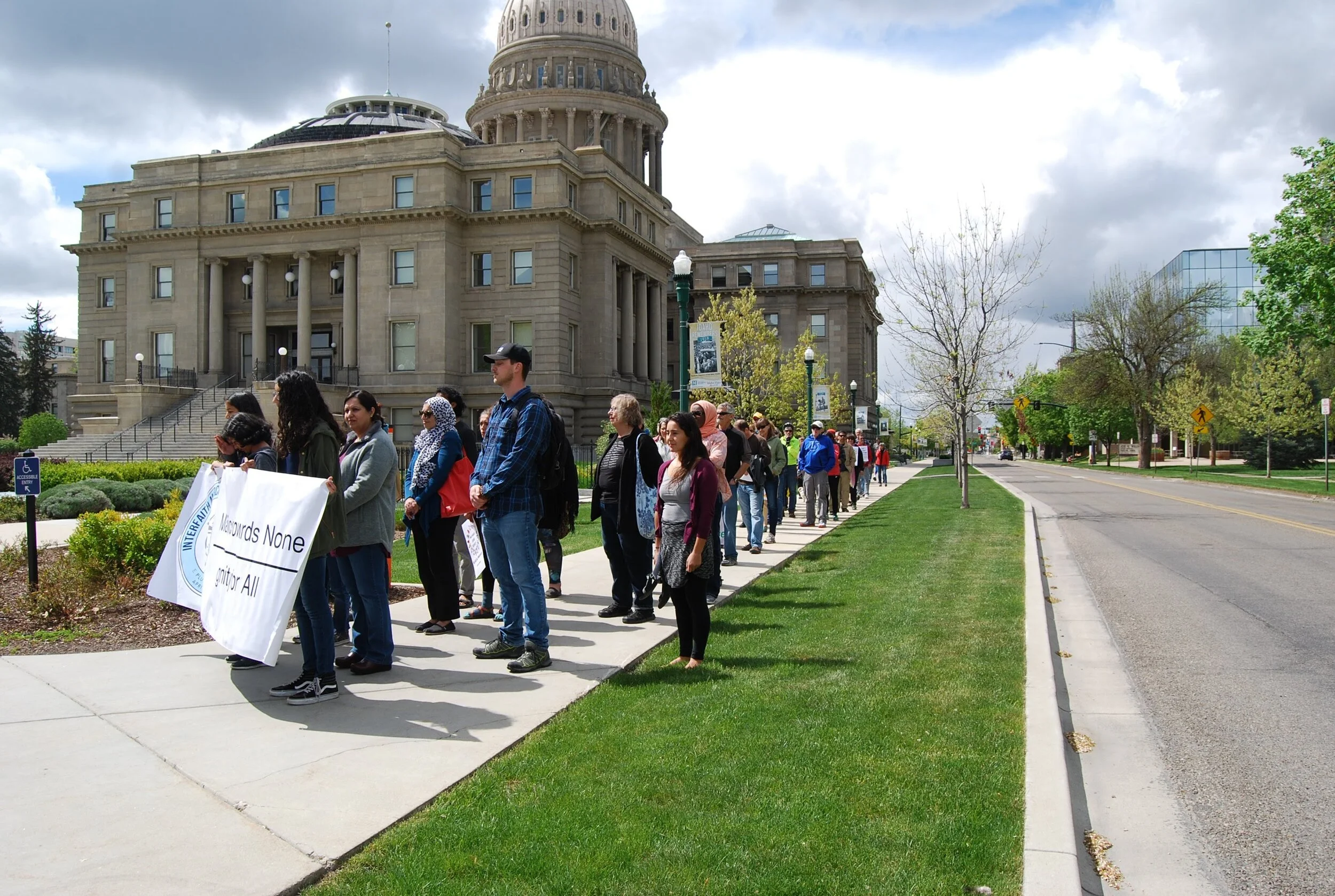Muslims, Human Rights, and Human Wrongs
I can imagine my response if someone told me I needed to be concerned about human rights as a young believer. I would have smugly said something like this: “I’m not concerned about Human Rights. I’m concerned about Human Wrongs!” Back then I understood that we are sinners. Now I realize that we are also the sinned against.
I am still concerned about human wrongs, but I’ve learned a few things. One important lesson: It’s wrong not to affirm human rights! Jesus’ ethical demands, to love your neighbor as yourself and to do unto others as you would have them do unto you, makes human rights a priority.
I want to speak briefly about the massively important biblical teaching about human rights as it applies to Muslims in the U.S. Then I want to conclude by looking at freedom of religion as it relates to Christian-Muslim relations.
The most famous human rights document - the Universal Declaration of Human Rights - is written in purely secular terms. However, there is a robust biblical basis of human rights that undergirds and shapes the moral foundations of this famous declaration.
Let me give you three reasons why human rights are a really big deal. First, all people are created in God’s image (Gen 1:26-28). This is theology 101. Everyone believes this… I wish! When we look at someone we shouldn’t see them primarily through the lens of race or religion. We shouldn’t see a Buddhist or a black, a white or a wasp, a Muslim or a Mexican. We should see God’s image bearers. And when we see that image in others, when we treat people with dignity and equality, we honor God.
Second, the Hebrew Scriptures call us to social justice and practical love:
- Do not mistreat an alien or oppress him (Exodus 22:21)
- When an alien lives with you in your land, do not mistreat him. The alien living with you must be treated as one of your native-born. Love him as yourself (Leviticus 19:34)
- Do not deprive the alien or the fatherless of justice (Deuteronomy 24:17)
- He [God] defends the cause of the fatherless and the widow, and loves the alien, giving him food and clothing. And you are to love those who are aliens (Deuteronomy 10:18-19)
Thirdly, what did Jesus say about these issues? Ok, you already know he said “love of neighbor” is one of the greatest commandments and that “doing unto others” sums up the law and the prophets. He also said this to the legalistic and judgmental religious leaders of his day: "Woe to you, scribes and Pharisees, hypocrites! For you tithe mint and dill and cummin, and have neglected the weightier provisions of the law: justice and mercy and faithfulness; but these are the things you should have done without neglecting the others (Matt 23:23). On God’s grading scale, justice, mercy and faithfulness are weightier than other commands.
Here is how the Gospel of Matthew describes Jesus: "Here is my servant whom I have chosen, the one I love, in whom I delight; I will put my Spirit on him, and he will proclaim justice to the nations (Matt 12:18).
I want to close with an important quote about the right of religious freedom from, Grace and Truth: Toward Christlike Relationships with Muslims:
"We affirm the right of religious freedom for every person and community. We defend the right of Muslims to express their faith respectfully among Christians and of Christians to express their faith respectfully among Muslims. Moreover, we affirm the right of Muslims and Christians alike to change religious beliefs, practices and/or affiliations according to their conscience. Thus we stand against all forms of religious persecution toward Muslims, Christians, or anyone else. God desires all people to make faith choices based on conscience and conviction rather than any form of coercion or violence (2 Cor 4:2).
We concur with John Piper’s incisive rationale for this perspective:
'Christians are tolerant of other faiths not because there is no absolute truth or because all faiths are equally valuable, but because the one who is Absolute Truth, Jesus Christ, forbids the spread of his truth by the sword. Christian tolerance is the commitment that keeps lovers of competing faiths from killing each other. Christian tolerance is the principle that puts freedom above forced conversion, because it’s rooted in the conviction that forced conversion is no conversion at all. Freedom to preach, to teach, to publish, to assemble for worship—these convictions flow from the essence of the Christian faith. Therefore we protect it for all.' "
Human rights means we need to address human wrongs. How many of us need to right the wrongs done to Muslims whether through our actions, words or in our attitudes?










